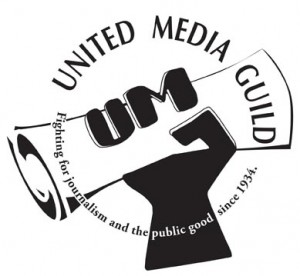The Guild has settled two grievances with the Post-Dispatch, resulting in financial settlements for seven journalists and seven salespersons.
In the salesperson case, the company agreed to return a significant portion of the digital sales penalties against certain salespersons in Periods 4 and 5.
The Guild agrees the company has the right to modify sales commission and bonus plans, in hopes of boosting sales promotion. The Guild understands the urgency to bui ld digital sales, since print advertising in newspapers continues to decline nationwide.
ld digital sales, since print advertising in newspapers continues to decline nationwide.
But we argued the company did NOT have the right to take away money our people earned on the print side if they failed to meet goals on the digital side.
At best, this penalty was a punitive form of motivation who must meet challenging goals to get paid.
At worst, this penalty was another way to increase the profit margin on print advertising sales.
The company ended this practice after our members protested through collective action. Business representative Mary Casey did a tremendous job working with our members as well as company management to resolve this problem.
Our salespeople received tremendous support from their colleagues in the newsroom on this matter. Post-Dispatch unit chair Joe Holleman did an excellent job rallying the troops.
The Guild proceeded with a grievance, claiming the company should return the penalties it deducted.
To settle this case, the company agreed to pay the seven salespersons $3,115. Most of them will regain 75 percent of the earnings the company took away from them.
In the newsroom case, the Guild argued that copy editors work in a higher classification than reporters. We made that claim because our top wage scale for copy editors is $15 per week more than our top scale for reporters.
In our view, that put copy editors into an “A-plus” classification.
We argued that A-scale reporters forced to work on the copy desk should be paid an additional $6 per shift for working in a higher classification. We also contended that reporters could not be asked to work desk shifts after one year, based on the following language in Article 6, No. 5:
“No employee shall be assigned to work in another classification on a regular basis in excess of (12) consecutive months unless otherwise agreed to by the employee.”
The company argued that the editor classification is no higher than the reporter classification, despite the differential. But to settle the grievance, the company agreed to pay seven of the impacted reporters the $6 differential for the shifts worked up until the point the grievance was filed.
The settlement — which does not include the three reporters who were already earning above-scale wages — adds up to about $3,100.
As part of the settlement, our only member who actually grieved this matter, will not be required to work copy desk shifts for the duration of the current contract.
To settle the case, the Guild agreed to relinquish its claim that copy editing is a higher classification. So reporters forced to work copy desks shifts going forward will not be eligible for the $6 differential.
The Guild feels strongly that reporters should report and copy editors should edit copy. The Guild believes the P-D should staff its copy desk with trained and experienced editors.
We will revisit this topic when negotiations for a new collective bargaining agreement begin next year.